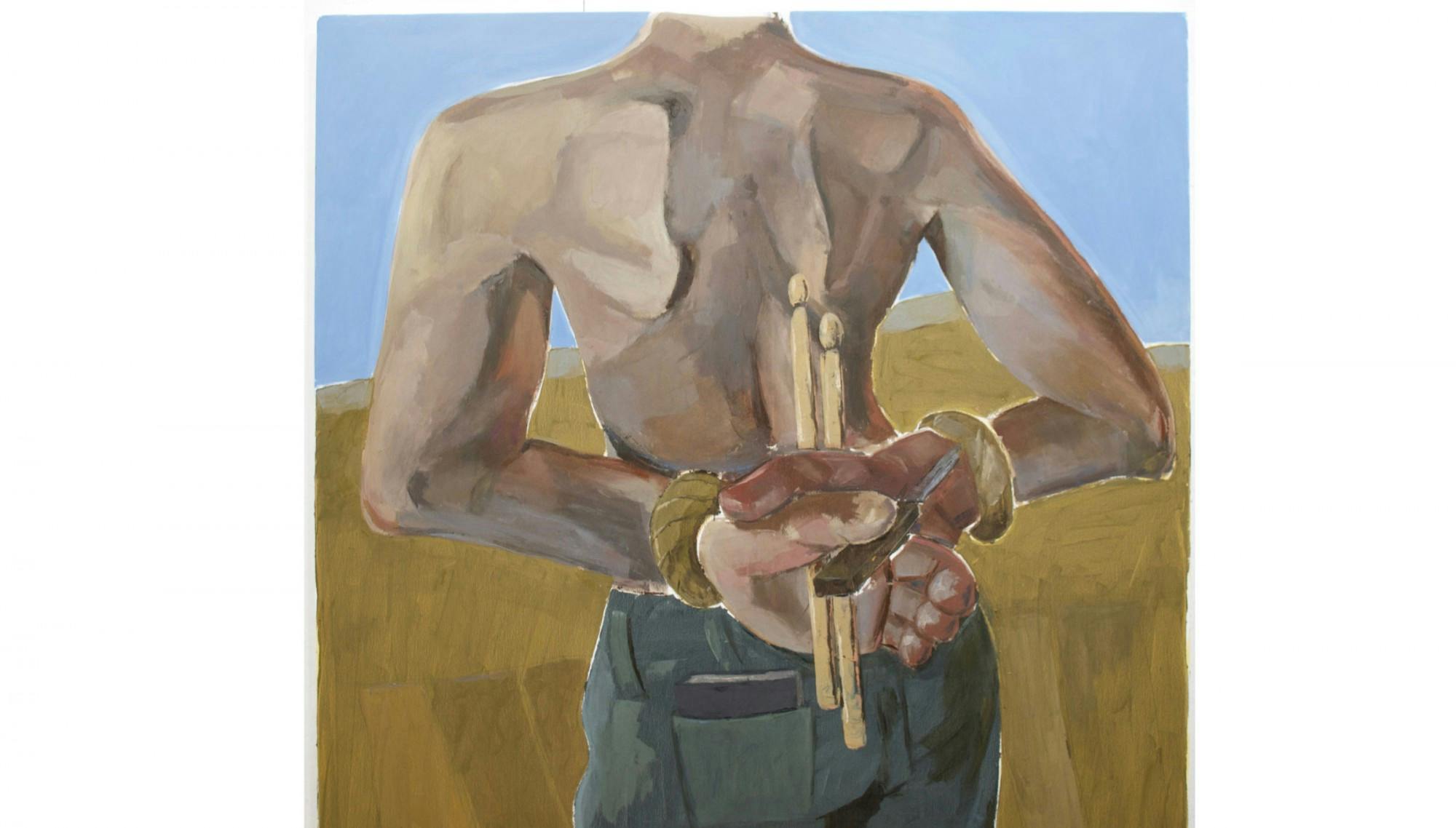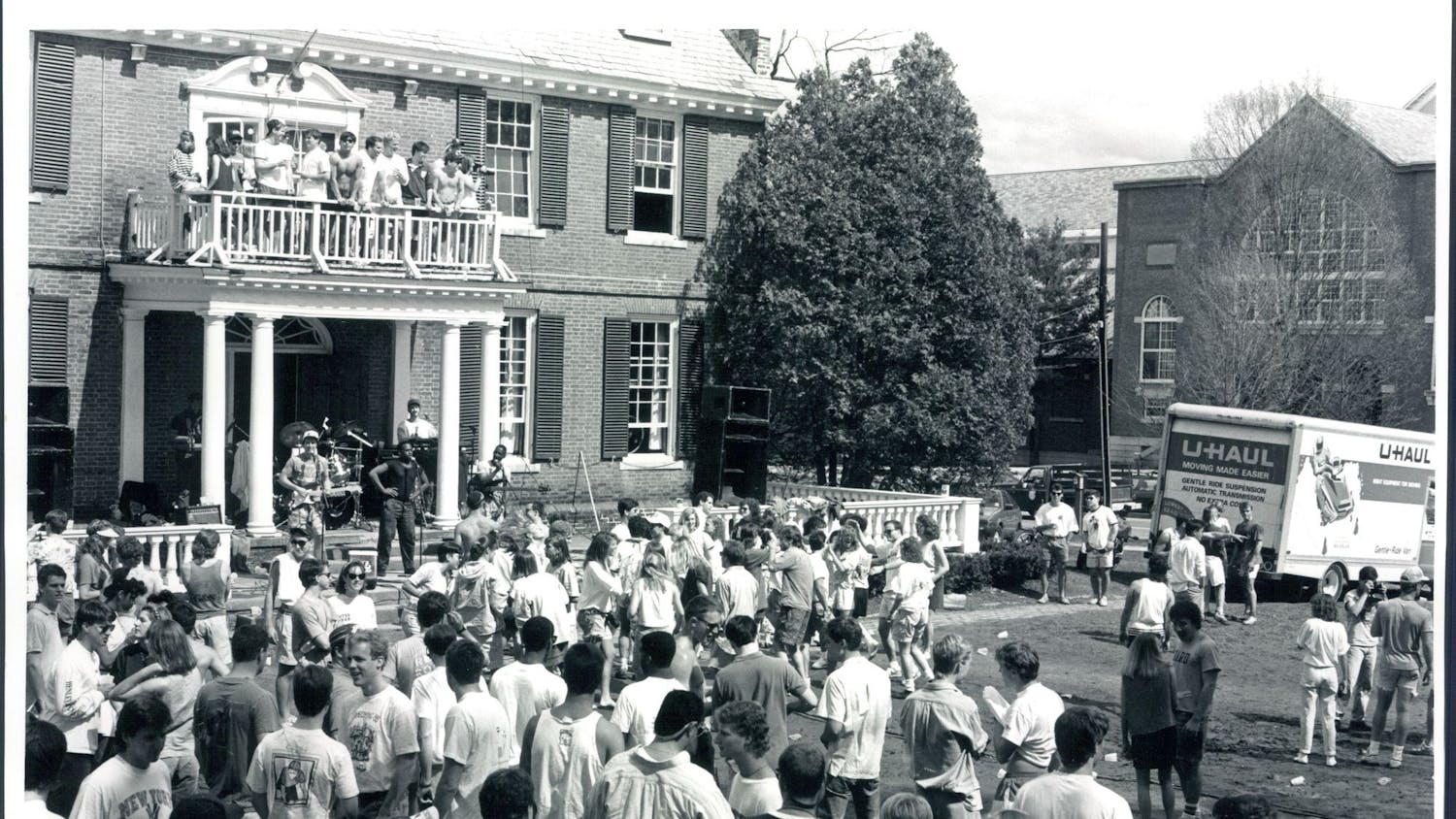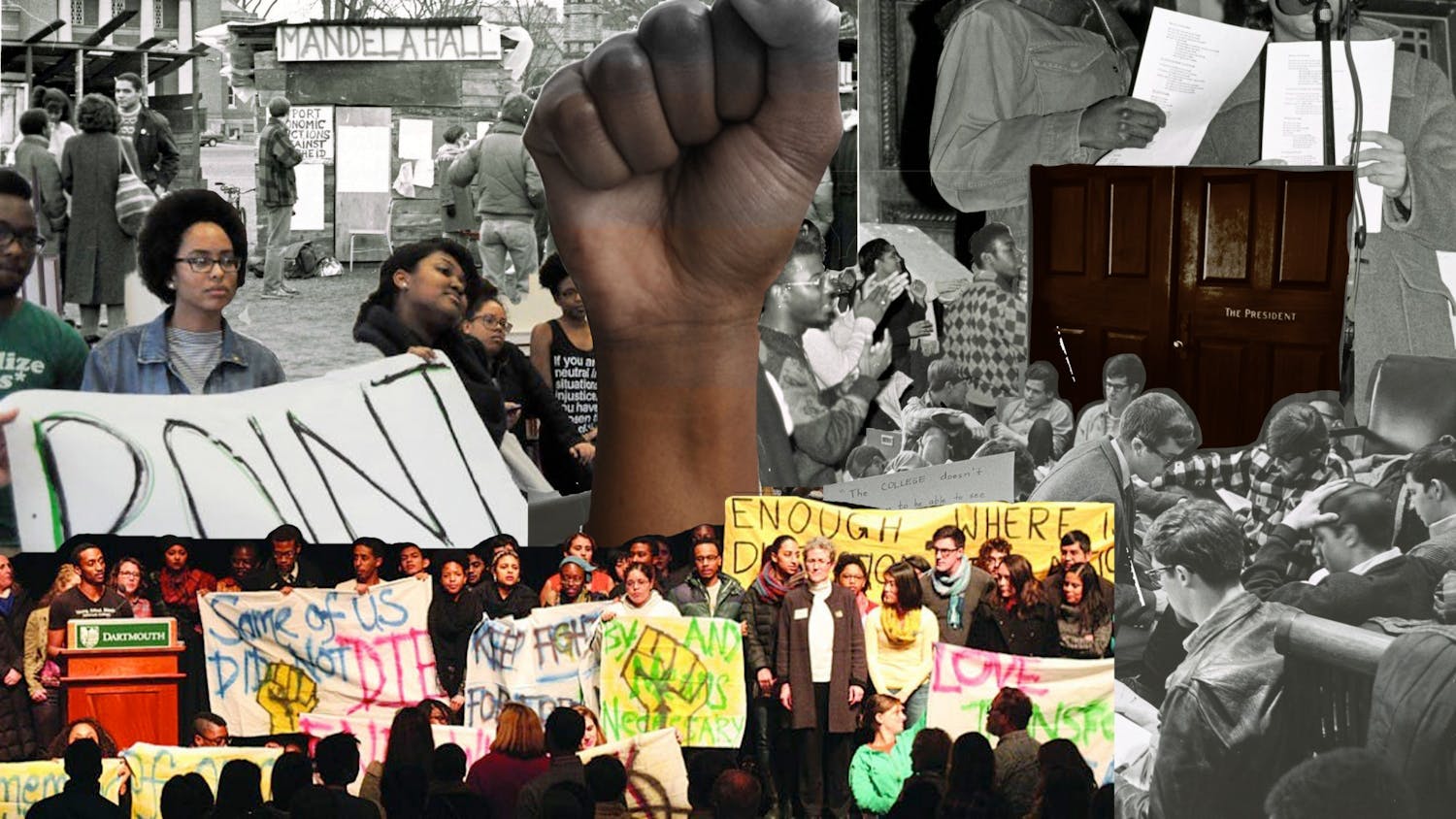From April 5-11, the Hopkins Center for the Arts welcomed 54 artists, activists, students, alumni and scholars to participate in a virtual symposium that explored the timely issue of police violence, chiefly against people of color.
This weeklong, international symposium — titled “Police Violence: Global and Local Perspectives” — was inspired by a June 2020 United Nations resolution that called for the “promotion and protection of the human rights and fundamental freedoms of Africans and of people of African descent against excessive use of force and other human rights violations by law enforcement officers.”
The event was conducted over the course of a week — as opposed to the more typical two-day format of a Hop symposium pre-pandemic — due to the virtual nature and breadth of art exhibits, discussions and films, according to art history professor Mary Coffey, an organizer of the event.
“Because we are an educational institution, [Dartmouth] can be a platform for having these conversations,” Coffey said. “We are supposed to be asking questions like this — thinking about, talking about, challenging things. We are supposed to be benefiting from the expertise and knowledge of scholars and artists and performers.”
The films selected for the symposium are films that people may not have seen before or might not know how to find, according to Hop director of film Sydney Stowe.
These include “Women in Blue,” about women officers in the Minneapolis Police Department; and “Wilmington on Fire,” which explores the only successful coup d’état on American soil, the 1898 Wilmington Massacre. Christopher Everett, director and producer of “Wilmington on Fire,” spoke on April 7 in a panel that analyzed parallels between the Wilmington Massacre and the Jan. 6 insurrection at the U.S. Capitol.
“This movie, Wilmington on Fire, was literally [about] the first insurrection on American soil, when a group of white supremacists stormed the government,” said Stowe.
She added that this symposium is remarkable for today’s times.
“I don’t know of another conference or symposium of this complexity and this breadth — I don’t know of one in the country,” said Stowe. “Given what has happened and is happening in Minneapolis, it is distressingly timely.”
On April 9th, The Hood Museum of Art put on a Gallery Talk for the symposium, titled “The Soul Has Bandaged Moments,” by recent alumni Kensington Cochran ‘20. Cochran’s artwork is centered around PTSD and trauma.
“Although it is not explicitly related to police violence, that theme of trauma seems so relevant to the themes of the conference,” said Amelia Kahl, the Barbara C. and Harvey P. Hood 1918 Curator of Academic Programming. The Gallery Talk had over 60 people in attendance, according to Kahl.
In addition to the films and art, the symposium featured keynote addresses, including “The Role of Race: The Practice of Pivoting to Police as Problem-Solvers in Uncertain Times” by chair of the UN Working Group of Experts on People of African Descent Dominique Day, "Building A World Where Breonna Taylor Would Still Be Here" by Barnard College researcher Andrea J. Ritchie and "I AM a child": A Girl-child's Truth and the Lies of Law Enforcement” by University of California, Berkeley African American Studies professor Nikki Jones. The keynotes connected to the overall theme of the symposium, and Day’s speech specifically addressed how anti-Black racism manifests globally while also discussing the history of police as slave patrols.
In addition to the United States, there were conversations about police violence in other countries including Brazil, Haiti, Kenya and South Africa. African and African American studies professor Trica Keaton, who helped organize the symposium, moderated a panel about racial profiling and police violence in France.
“There was both this local and international perspective,” said Kahl. “I think it gave an important weight to the conference and showed how these issues are systemic and global.”
On the final day of the symposium, Khymaya Perkins ’20, Miles Battle ’21 and Monik Walters ’19 participated in the panel “Police Violence: The Lived Experiences of Dartmouth Alumnae and Students,” which was moderated by assistant dean of pluralism and leadership Angela Brizant and Tuck School of Business assistant director of admissions recruitment Felicia Swoope.
“A student panel makes [the symposium] feel rooted in Dartmouth,” Kahl said. “You want to respect that balance between including the students and listening to them, but you also don't want to push people to be vulnerable when they might not want to be, and listen to people's experiences when they want to share them,”
In addition to sharing their own experiences and stories, Perkins, Walters and Battle had a conversation on the topics of police abolition and reform.
“It’s one thing to listen to academics and people who speak politically correct and study this from a professional perspective, but by finishing the symposium with the voices of undergraduate and recent graduates, you get a perspective of the people who live this on a day-to-day basis,” Battle said. “I think it's great that we got the opportunity to speak, but I think it's even better that we got the opportunity to conclude the symposium.”
Battle agreed that including students in the symposium contributed to a healthy, open-minded and productive dialogue, which he said will be necessary moving forward.
“It’s imperative, not just for us as panelists to have those conversations with one another, but for people to be invited in,” Battle said. “People get in echo chambers when they talk to people who believe the same things that they do, people often seek it out and look to it for confirmation, but that's dangerous.”
The inclusion of student and alumni voices stood out to Princilla A. Minkah ’21, who attended several symposium events, including the panel.
“A lot of the personal anecdotes that they told were so necessary,” Minkah said. “It goes to show a lot of systematic issues that still exist, not just nationally, but even on our tiny little campus in our tiny little town.”
There was also a question and answer portion of the panel. Battle found that some questions suggested he may not experience the same racism that affects non-Ivy League-educated Black people.
“Some of the questions made me think that the people who attended our panel were paying attention to the fact that we are Dartmouth students attending an Ivy League institution, but we are Black first,” Battle said. “We still experience the talk that Black people, or Black children, get from their parents about how to interact with police, what to do and what cost to take to make sure you arrive home safely.”
Correction appended (April 27, 2021): A previous version of this article stated incorrectly that the symposium took place from April 11-15. The article has been updated to reflect that the symposium took place from April 5-11.




